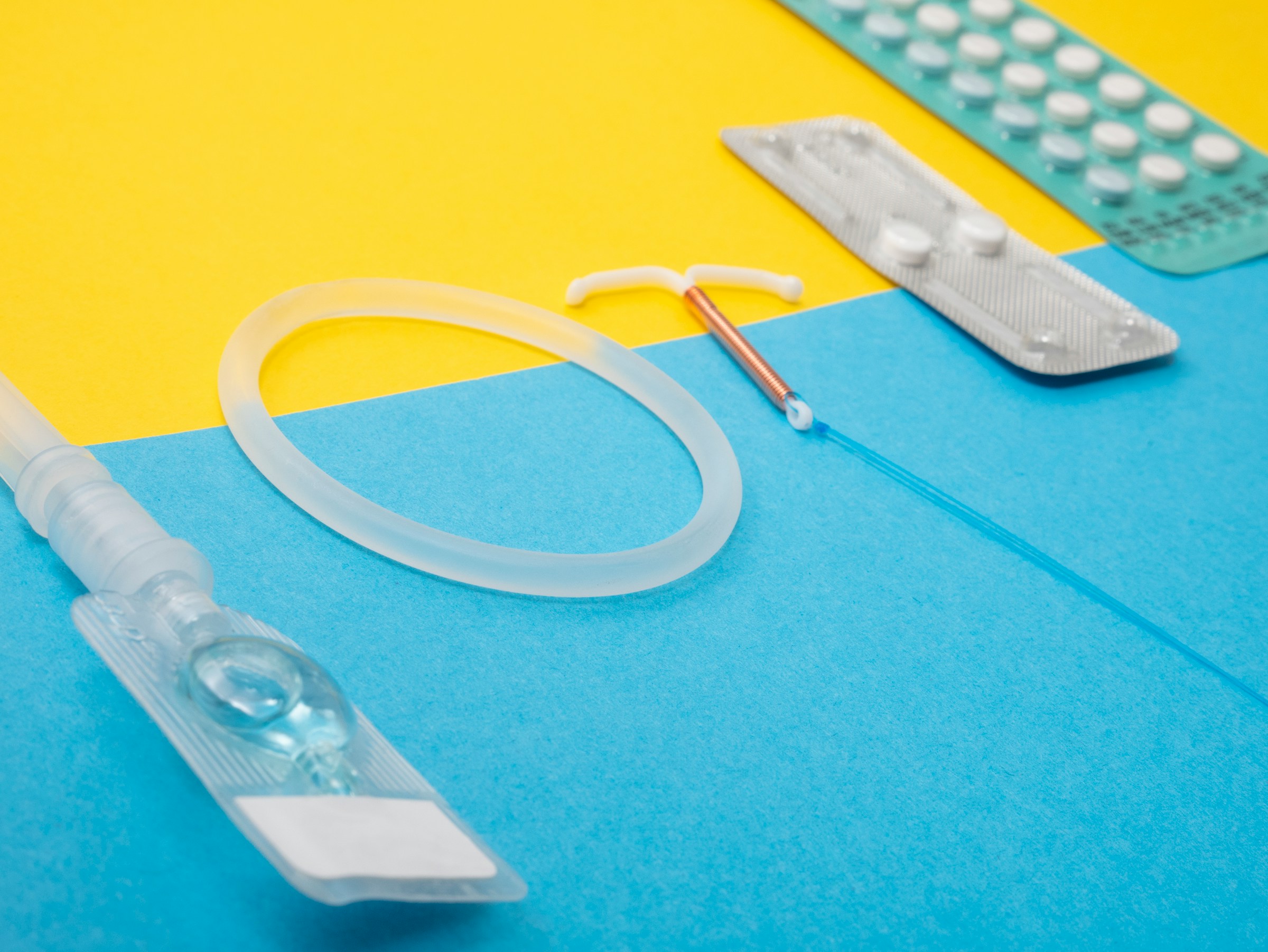Should birth control/hormone replacement really be the first choice of treatment when there is any sign of hormone imbalance or female health issue? Is the cost worth the benefit? What if there was a more natural way to correct hormonal imbalances and avoid getting pregnant? Learn about natural alternatives to birth control here!
Common reasons women might be put on birth control:
- Acne, painful periods
- Heavy periods
- Irregular period
- PMS
- PCOS
- Endometriosis
- Migraines
- Pregnancy Prevention
Far too often birth control is the first treatment method offered to women with almost any female related issue. The pill comes with many risks often not discussed when it is given. If you’re curious of the adverse effects of a specific brand, search “(your pill name) insert pdf.”
Here is what the insert of the Sprintec pill says:
ADVERSE REACTIONS
An increased risk of the following serious adverse reactions has been associated with the use of oral contraceptives (See WARNINGS section).
- Thrombophlebitis and venous thrombosis with or without embolism
- Arterial thromboembolism
- Pulmonary embolism
- Myocardial infarction
- Cerebral hemorrhage
- Cerebral thrombosis
- Hypertension
- Gallbladder disease
- Hepatic adenomas or benign liver tumors
The following adverse reactions have been reported in patients receiving oral contraceptives and are believed to be drug-related:
- Nausea
- Vomiting
- Gastrointestinal symptoms (such as abdominal cramps and bloating)
- Breakthrough bleeding
- Spotting
- Change in menstrual flow
- Amenorrhea
- Temporary infertility after discontinuation of treatment
- Edema
- Melasma which may persist
- Breast changes: tenderness, enlargement, secretion
- Change in weight (increase or decrease)
- Change in cervical erosion and secretion
- Diminution in lactation when given immediately postpartum
- Cholestatic jaundice
- Migraine
- Rash (allergic)
- Mental depression
- Reduced tolerance to carbohydrates
- Vaginal candidiasis
- Change in corneal curvature (steepening)
- Intolerance to contact lenses
The following adverse reactions have been reported in users of oral contraceptives and the association has been neither confirmed nor refuted:
- Pre-menstrual syndrome
- Cataracts
- Changes in appetite
- Cystitis-like syndrome
- Headache
- Nervousness
- Dizziness
- Hirsutism
- Loss of scalp hair
- Erythema multiforme
- Erythema nodosum
- Hemorrhagic eruption
- Vaginitis
- Porphyria
- Impaired renal function
- Hemolytic uremic syndrome
- Acne
- Changes in libido
- Colitis
- Budd-Chiari Syndrome
Another side effect many people talk about is a change in partner preference while on or off the pill. It doesn’t take much looking to find several women telling how when they got off the pill their partner became less attractive to them, even when they were together for several years.
Nutrients to Naturally Balance Hormones
Hormone imbalances are often due to nutrient deficiencies. Many nutrients are used to break down the hormones from the pill. Long-term use leads to deficiency of these nutrients: Folate, B1, B2, B3, B6, B12, Vitamin C, Zinc, and Selenium.
Ensuring you have these nutrients in your diet is an easy alternative to birth control when looking to balance female reproductive hormones.
These nutrients are important for so many processes in the body it’s hard to list everything, but here’s some of the highlights:
- Energy production – fatigue
- Immune function – allergies, autoimmunity, easily getting sick
- Hormone balance – PMS, cramps, bloating
- Methylation – gene expression, detox, neurotransmitters
- Neurotransmitter production – mood, stress tolerance, motivation, sleep
It is no wonder there is such a long list of side effects reported when on the pill.
How to Naturally Balance Hormones
- Reduce overall stress – This could be emotional, biochemical, or physical stressors. Chronic stress make the body produce more cortisol than progesterone and creates estrogen dominance. Avoid the stressful situations that you can, and find a healthy outlet for the stress you can’t avoid. Many people use exercise as their meditation and stress outlet.
- Eat natural whole foods – We are only as healthy as the food we eat. Conventional food is grown in nutrient depleted soil and is therefore low in necessary nutrients itself. Eating higher quality whole foods ensure you are getting as many micronutrients as you can in your food. This will translate to having the “building blocks” you need to make progesterone and estrogen. You will also have what you need to break down excess cortisol and detox from any environmental toxins you are exposed to.
- Reduce your toxic load and support detoxification pathways – Avoid harmful ingredients such as fragrances, seed oils, artificial colors, artificial sugars, MSG, etc. NSAID’s should also be avoided if at all possible as they deplete sulfur, therefore lowering the ability to break down estrogen, and heal connective tissue.
Check out my Balancing Female Hormones Without Birth Control, HRT, or other Medications article to learn more about natural support.
So… What is the Best Method to Prevent Pregnancy?
Of course, one reason many stay on the pill is because they want to prevent pregnancy. If you are looking for a natural method without synthetic hormones, or an IUD with a laundry list of side effects, then investigate fertility awareness method (FAM). This is a natural alternative to birth control. You can learn to track different fertility signs, to determine when you are and aren’t fertile. The symptothermal fertility awareness method involves a combination of temperature tracking (taking your temperature each morning) as well as observing signs such as cervical mucus.
If you are using the pill to correct for issues outside of avoiding pregnancy, then work with a holistic doctor to help support your hormone balance and health so you don’t get the side effects from taking a pill to do so.
Hopefully, this information can help you in your decision of whether or not to use birth control, as well as how to truly resolve hormonal imbalances. If you have any questions or want me to expand on anything, let me know in the comments below.














Leave a Reply
You must be logged in to post a comment.